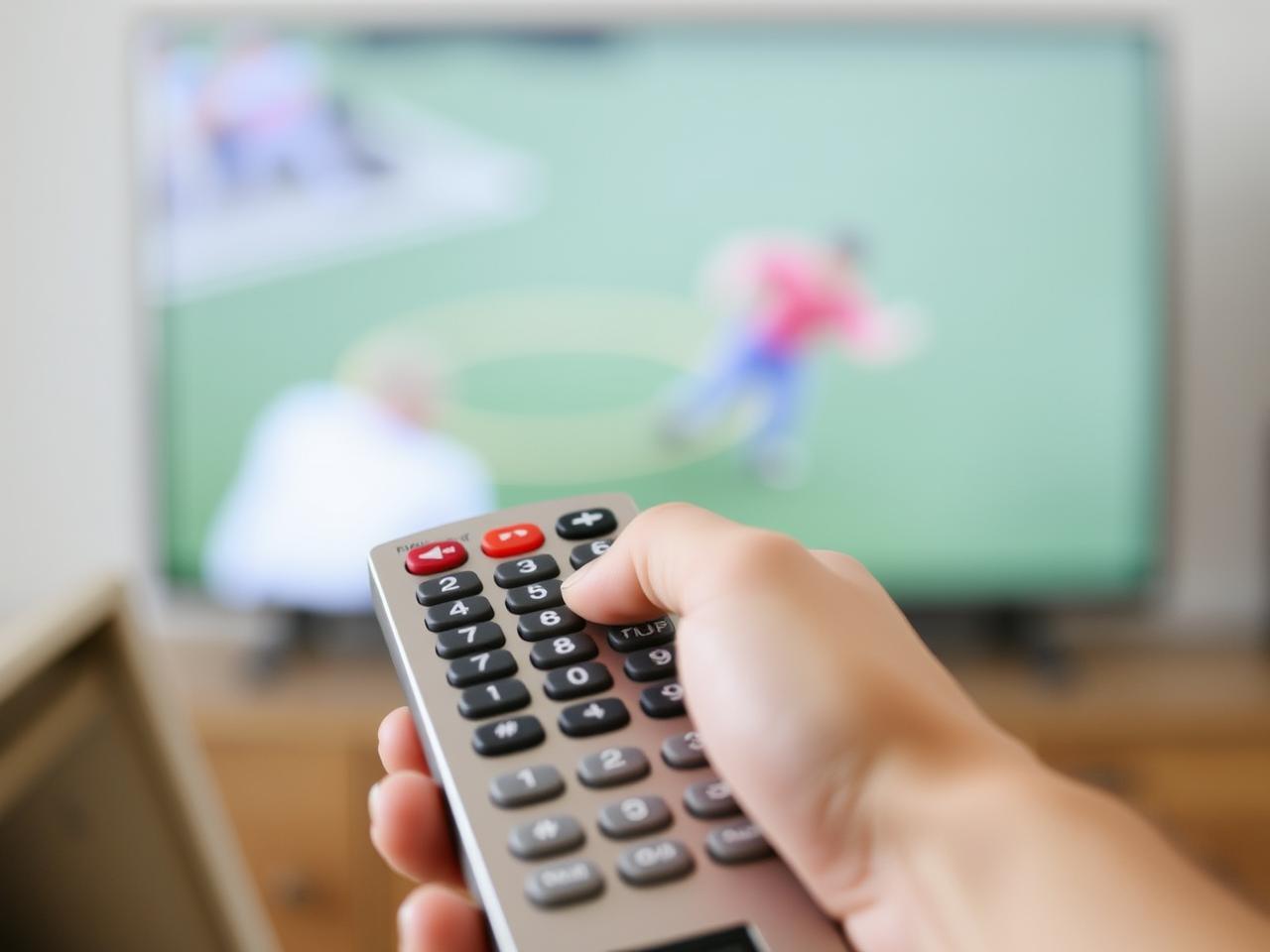Why Finding the TV Remote Should Be an Olympic Sport
The competition for control of the television remote is a common occurrence in many households worldwide. This phenomenon crosses cultural and generational lines, affecting families of various backgrounds and age groups. The remote control device serves as a tool for determining program selection and viewing preferences, often leading to disagreements among family members.
The possession of the remote control can be seen as a representation of decision-making power within the household, particularly regarding entertainment choices. This can result in conflicts as individuals attempt to influence or dictate the viewing experience for the entire family. The desire to control the remote may stem from personal preferences, differing schedules, or a need for autonomy in media consumption.
In some households, the remote control becomes a focal point of family dynamics, with its possession potentially causing tension or prompting negotiations among family members. This situation can lead to the development of informal rules or systems for sharing control of the television, such as taking turns or designating specific viewing times for different family members. The prevalence of this issue has been noted in popular culture, often depicted in television shows, movies, and literature as a relatable aspect of family life.
As technology evolves and media consumption habits change, the nature of this conflict may shift, but the underlying dynamics of shared decision-making in household entertainment remain a relevant topic in many families.
Key Takeaways
- The struggle for the TV remote is a common source of tension in many households.
- Remote retrieval has become a competitive sport, with family members vying for control of the remote.
- The Remote Olympics is a new addition to family game nights, adding excitement and fun to the mix.
- Tips and tricks for successful remote hunting can help individuals improve their chances of winning the battle for the remote.
- The remote relay turns remote retrieval into a team sport, bringing families together in the pursuit of entertainment.
The Art of Remote Retrieval: A Competitive Sport
The Battle for Control
The art of remote retrieval is a skill that requires speed, agility, and cunning. It is a competitive sport that pits family members against each other in a battle for control over the TV remote. The ability to quickly and stealthily retrieve the remote from its current possessor is a valuable skill that can lead to victory and triumph.
A Game of Strategy and Cunning
Remote retrieval requires strategy, timing, and precision, as well as the ability to outmaneuver and outsmart opponents in the quest for control over the television. Remote retrieval is not just about physical prowess; it also requires mental acuity and quick thinking. It is a game of strategy and cunning, as family members seek to outwit and outmaneuver each other in the quest for the remote.
A Competitive Sport
The art of remote retrieval is a competitive sport that requires skill, determination, and a willingness to do whatever it takes to emerge victorious. It is a game that can lead to intense rivalries and fierce competition within the household, as family members vie for control over the television viewing experience.
The Remote Olympics: A New Addition to the Games
The Remote Olympics is a new addition to the world of competitive sports, as families come together to compete in a series of events centered around the quest for the TV remote. This unique competition pits family members against each other in a series of challenges designed to test their speed, agility, and cunning in the pursuit of remote control dominance. The Remote Olympics is a fun and lighthearted way for families to come together and engage in friendly competition, as they vie for control over the television viewing experience.
The Remote Olympics features a variety of events that test different aspects of remote retrieval skills, including speed races to retrieve the remote from a central location, stealth challenges to sneakily take control of the remote without being detected, and endurance tests to see who can hold onto the remote the longest. The Remote Olympics is a fun and entertaining way for families to bond and engage in friendly competition, as they come together to test their skills in the quest for control over the TV remote. It is a lighthearted addition to the world of competitive sports that brings families together in pursuit of entertainment and fun.
Remote Hunting: Tips and Tricks for Success
Remote hunting is a skill that requires patience, perseverance, and a keen eye for opportunity. It is a strategic pursuit that involves carefully observing the movements and habits of the current possessor of the remote, and waiting for the perfect moment to make a move. Remote hunting requires stealth and cunning, as well as the ability to anticipate the actions of opponents in order to successfully retrieve the remote.
It is a game of strategy and patience, as family members seek to outmaneuver each other in the quest for control over the television. One key tip for successful remote hunting is to carefully observe the habits and routines of the current possessor of the remote. By understanding their patterns and behaviors, you can anticipate when they are most vulnerable and make your move at the perfect moment.
Another important tip is to be patient and wait for the right opportunity to present itself. Remote hunting requires a keen eye for opportunity and the ability to act quickly and decisively when the time is right. By honing your skills in observation, patience, and quick thinking, you can increase your chances of success in the quest for control over the TV remote.
The Remote Relay: A Team Sport for the Whole Family
The Remote Relay is a team sport that brings families together in a fun and lighthearted competition centered around the quest for control over the TV remote. In this unique event, family members form teams and compete in a series of relay challenges designed to test their speed, agility, and teamwork in retrieving the remote from a central location. The Remote Relay is a fun and entertaining way for families to bond and engage in friendly competition, as they work together to outmaneuver their opponents in the pursuit of remote control dominance.
The Remote Relay features a variety of challenges that test different aspects of remote retrieval skills, including speed races to retrieve the remote from a central location, teamwork challenges that require coordination and communication between team members, and endurance tests to see which team can hold onto the remote the longest. The Remote Relay is a lighthearted addition to family game night that brings families together in pursuit of entertainment and fun. It is a unique team sport that encourages cooperation, communication, and friendly competition among family members as they work together to achieve victory in the quest for control over the television.
Remote Retrieval Training: How to Hone Your Skills
Physical Conditioning: The Foundation of Remote Retrieval
One key aspect of remote retrieval training is physical conditioning, as it requires speed and agility to outmaneuver opponents in the quest for control over the television. By engaging in regular physical exercise and training, you can improve your speed and agility in retrieving the remote from its current possessor.
Mental Acuity: Outwitting Opponents with Strategy and Precision
Another important aspect of remote retrieval training is mental acuity and quick thinking. It requires strategy, timing, and precision to outwit opponents in the quest for control over the TV remote. By engaging in mental exercises and practicing quick thinking skills, you can improve your ability to anticipate opponents’ actions and make quick decisions in retrieving the remote.
Mastering the Art of Remote Retrieval
Remote retrieval training is an essential part of honing your skills in this competitive sport, as it requires dedication, practice, and a willingness to improve your speed, agility, and cunning in retrieving the remote from its current possessor.
The Remote Olympics: Bringing Families Together in the Pursuit of Entertainment
The Remote Olympics is a unique addition to family game night that brings families together in pursuit of entertainment and fun. It is a lighthearted competition that encourages cooperation, communication, and friendly competition among family members as they work together to achieve victory in the quest for control over the television. The Remote Olympics features a variety of events that test different aspects of remote retrieval skills, including speed races to retrieve the remote from a central location, stealth challenges to sneakily take control of the remote without being detected, and endurance tests to see who can hold onto the remote the longest.
The Remote Olympics is a fun and entertaining way for families to bond and engage in friendly competition, as they come together to test their skills in the quest for control over the TV remote. It is a unique team sport that encourages cooperation, communication, and friendly competition among family members as they work together to achieve victory in the pursuit of entertainment and fun. The Remote Olympics brings families together in pursuit of entertainment and fun, as they engage in friendly competition centered around the quest for control over the TV remote.
FAQs
What is the article “Why Finding the TV Remote Should Be an Olympic Sport” about?
The article discusses the challenges and skills involved in finding the TV remote and argues that it should be considered an Olympic sport.
What are the reasons for considering finding the TV remote as an Olympic sport?
The article suggests that finding the TV remote requires physical agility, mental acuity, and strategic thinking, making it a suitable candidate for an Olympic sport.
What are the potential benefits of considering finding the TV remote as an Olympic sport?
The article proposes that recognizing finding the TV remote as an Olympic sport could promote physical activity, mental stimulation, and entertainment for participants and viewers.
Are there any existing competitions or events related to finding the TV remote?
As of now, there are no official competitions or events specifically dedicated to finding the TV remote. However, the article advocates for the creation of such events in the future.
What are the potential challenges in establishing finding the TV remote as an Olympic sport?
The article acknowledges that determining the rules, regulations, and criteria for judging finding the TV remote as an Olympic sport would be a significant challenge. Additionally, gaining recognition from the International Olympic Committee would also be a hurdle.







